For the first time in my life I have filed a formal complaint with the Australian Press Council.
The issue isn’t unflattering press or even a false claim. As a somewhat public figure over the years I’ve had plenty of good and bad press, and well, even some of the nasty criticism has surely been deserved. But this isn’t about me. It is about my child. I have made a formal complaint to the Press Council in the hope of having identifying images of my young daughter, which were taken by a stranger without our consent or knowledge, removed from or blurred in an article published in the media and still available online.
A few specifics: The images of us were taken in an airport when we had no reason to believe any photographers or press were nearby. We were travelling as a family, returning home from a writer’s festival. The pictures were then sold to the Daily Mail, who published them as a series in August of 2014. They show our daughter clearly from many angles and make her identifiable to strangers, and continue to do so by their ongoing presence online. These are the first images that generally come up when anyone searches for my name and the words ‘child’, or ‘daughter’, and they are the only images of their kind. (I will explain what I mean by this in more detail in a moment.)
The article names her and identifies her as my daughter. In the photographs it is clear that we have no idea we are being watched or photographed. My concerns are with the photographs themselves, and the position taken by the publication that similar images could be taken, sold and published again today or tomorrow, and that this could happen anytime she is in a public place. I also have concerns about the wider issue of selling unauthorised images of children, and the market for such images.
We have articulated our privacy and safety concerns to the publication and this has not compelled them to blur our child’s face or remove or crop the images of her. Their view on the matter is different from ours. In our view, blurring her face would cost them nothing. Leaving the images out there costs us. It costs us our child’s privacy. In their view, the images were purchased through a reputable agency and being compelled to blur the images, remove them, or get rid of the article entirely would not be in their interest. (I note, however, that the blurring of children’s faces to protect their privacy is a fairly common practice now in the UK and the USA – including in The Daily Mail, where several examples can be found.)
To be clear, I have no concern or complaint about anything the journalist herself has written. Neither do I have particular concern about the conduct of the photographer, as we were in a public place and he did not harass us or put us in danger (this can be an issue in other cases, which is something I will get to in a moment), though he did take the images of us with our child without our consent and sell those, which is something I strongly disagree with. We’ve reached out to the photo agency to let them know that taking identifying images of our child is not something we condone or give our blessing or consent for, in as much as our position as parents matters in this. I have also been interviewed about the general issue of children’s images and consent as well as the #NoKidsPolicy and I’ve posted specific statements on social media, so photographers can know our wishes in relation to our child, should the situation arise again. (You can see this here and here, as well as below.)
We’ve politely asked that the photos be blurred or removed. We’ve been told that won’t happen, and that similar photographs could be taken and published.
So, what does the law tell us?
I’ve been advised by some that taking photos of children is legal unless it is for commercial purposes, in which case a signed release is required. (As the images were sold to a publication, and The Daily Mail isn’t a not-for-profit, this has arguably been a commercial transaction.)
Further, the Privacy Act 1988 (Cth) in Australia covers the use of ‘images of children that would enable them to be identified – for example, in a school uniform, outside their house, or showing their name.’ Our daughter’s images and name are clearly shown in the article, which would seem to make the Privacy Act 1988 (Cth) relevant to our case. Information on this matter can be found at the Australian Institute of Family Studies, shown below, where it specifically states these identifying images of children ‘should not be published on the Internet without the consent of both the child and their parent or guardian’ :
However, I’ve been advised by others, including the publication, that there is no restriction on such images, therefore any photos taken in public places can be sold and published, regardless of the age of the child or any consent or knowledge of parents or guardians. In other words you could have clearly identifiable photographs taken of your child or any child in your care – while they are leaving school, walking through an airport, playing on a beach, etc – by a stranger, and have those photographs sold for profit and published in the media, identifying your child by name, and perhaps even identifying their school or whereabouts, all without your consent or even your knowledge. I’m not talking about street scenes. I am not talking about anonymous photographs in public places. I am talking about clearly identifiable images of your child, identified as your child by name, and distributed in the press without your consent, to be used as ‘news’ or click bait, despite the fact that the child is not a public figure.
Most of us know by now that schools have strict policies regarding photography of children and consent of parents or guardians, for safety and privacy reasons. In my (unpaid) work for UNICEF there are very strict parameters regarding images of minors and consent. Yet, despite this and the Privacy Act 1988 (Cth), seemingly any child can legally be photographed and identified in the media.
I’m not the only person who sees problems with this. Actors Kristen Bell, Halle Berry and Jennifer Garner are among those high profile people in the US who have had some success fighting for the rights of children to have privacy in recent years, and they have championed this issue for far more pressing reasons than I have personally experienced, because as major celebrities their kids are sometimes stalked and even harassed by paparazzi. You can follow some of the discussion of this issue by searching for the #NoKidsPolicy hashtag, and also view some of their testimony at a hearing before the California State Assembly Committee on Public Safety, including descriptions by Halle Berry of school yards becoming frightening ‘battlegrounds’. They’ve urged publications to stop publishing unauthorised images of people’s children, and after considerable campaigning, boycotting and public awareness raising about the way these images are obtained, many publications have decided to stop publishing any unauthorised photographs of kids. This can be very important for clear security reasons, even in situations where that child’s face has been shown to the public by the parents in a controlled manner, on social media, in magazines and the like because if publications no longer publish photographs of kids taken without consent, and stop putting a dollar value on those types of images, it will no longer be worthwhile for paparazzi-style photographers to stalk children.
It matters that strangers are not encouraged to stalk kids for cash, because, while we would like to believe that literally everyone who operates a camera will be professional, sensible, safe and respectful around kids, that is not the case in reality. A small percentage of professionally employed photographers (by no means most photographers, and not the one who photographed us, I’m sure) do actively stalk children, even hiding out for hours or days in wait outside schools and homes. Some go to great lengths to get particular reactions so they can sell those images. Some adults actively stalk other people’s kids for money, because there is a market for it, and to some extent this is legal only because they have a camera and will likely get pay. Sometimes groups of photographers will follow or even chase a subject. This can obviously be very distressing to kids. All this is one reason why many people who have been deemed ‘celebrities’ or otherwise of interest to the public will publish photographs of their babies on public social media feeds, or even in magazine spreads – sometimes unpaid, sometimes for profit, sometimes raising money for charity – because once the images are published the value of that elusive ‘first’ image of their little one then goes down significantly, and there is less of a price on their child’s head, so to speak. (Yes, this is a real thing.)
Last year Kensington Palace put out a statement about this issue: ‘In recent months, there have been an increasing number of incidents of paparazzi harassment of Prince George. And the tactics being used are increasingly dangerous. This letter is being published now to inform the public discussion around the unauthorised photography of children. It is hoped that those who pay paparazzi photographers for their images of children will be able to better understand the distressing activity around a two-year old boy that their money is fuelling. We also feel that the readers who enjoy the publications that fuel this market for the unauthorised photos deserve to understand the tactics deployed to obtain these photos.’
Many celebrities have pointed out that their children become distressed by harassment and stalking from certain paparazzos, and this has been backed by plenty of footage. Laws are also in place in some territories. In California, since Jan 1, 2014, a photographer convicted of harassing a minor who has been singled out due to his or her parent’s profession (celebrities, people involved in high profile cases, public tragedies, etc) can spend up to a year in jail and fines can also be imposed. The law also allows the parent or guardian of the child being harassed to seek civil liability. ‘Kids shouldn’t be tabloid fodder nor the target of ongoing harassment,’ Sen. Kevin de Leon of Los Angeles said when Senate Bill 606 was passed. This was followed by the passing of a privacy law that made it a crime for paparazzi to use drones to take photographs of celebrities and their children. The legislation, signed at the same time as an anti-‘revenge porn’ law (we are still waiting for similar, specific anti-‘revenge porn’ legislation to be passed in Australia), aimed to also protect privacy for all members of the general public.
Websites like Just Jared have enforced a #NoKidsPolicy, with Jared Eng explaining, ‘we won’t be publishing unauthorized photos or videos of celebrities’ children who are not public figures themselves.’ Perez Hilton has also made the decision not to post unauthorised images of minors, with Perez writing, ‘I strongly support all legislation, some championed and initiated by celebs, that helps protect children.’ E! Online, Today, Entertainment Tonight, Access Hollywood, Inside Edition, NBC’s Today Show, Us Weekly, The Hollywood Gossip and People are just some of the other media who have adopted the policy. It is a policy that makes good sense.
This isn’t an issue only in the US.
One Australian celebrity told me her children are regularly stalked by the paparazzi and she wants to complain publicly about it but lives in fear of inflaming the publications further. ‘I’ve been told there’s nothing I can do about the pap shots,’ she told me. ‘The paparazzi have followed me to my children’s school, a kindergarten open day, Mother’s Day lunch, a friend’s child’s birthday party, on holiday in bathers and a doctor’s appointment for my daughter.’ She directed me to numerous such images published online. It’s clear they have no idea they are being stalked. The children are also very young. She is not alone in this experience.
This concern about what will happen if you publicly complain about publications using unauthorised pictures, or if you go public and then attract a larger number of people to search for and view the images of your children (something I’ve had to consider in posting this), is one reason I have not spoken openly about these particular images until now, but having recently been told similar photographs could be published in the future, I feel I have little choice but to open the discussion up more publicly. I have been fortunate, and the press has overwhelmingly treated me fairly, for which I am grateful. The Daily Mail have been absolutely civil in their communications. This issue is one of principal, however, with impacts on not only my child but other children. I believe it is worth discussing.
There are times when news outlets are legitimately faced with difficult ethical decisions about the use of images of minors, as for example in depicting the heartbreaking violence experienced by children in Syria or the terrible death toll on refugees (and even with clear benefits for illuminating world tragedies, some use, including on social media, does trouble me) but I don’t believe the specific targeting of people’s children, as outlined above, qualifies as being sufficiently ‘in the public interest’ to overcome standard privacy laws and concerns, as the Press Council statement of General Principles sets out:
Why are there some images of my daughter online, then? some of you may now ask.
For years now, since the time she was growing out of her baby face and beginning a life that involved going to school, I have not shown her clearly identifiable face on any media. My daughter’s partial face is sometimes shown on the standard social media sharing – we live in an age of digital sharing after all, and I am perfectly happy for those photographs to be shared and seen because we decide as a family what is appropriate and what exposes her too much – but we expressly avoid images that show her clearly in a way that makes her identifiable to strangers, or could locate her. I do not take her to press events, or down red carpets. In any public situation where we are together and the public may take photographs she could find herself in, intentionally or accidentally, we cover her eyes with large glasses, or a hat, or other coverage to protect her privacy. This isn’t the right choice for every family but it is the balance we have arrived at.
This all takes some effort, I should note, not only by us but our friends and loved ones, because of the frequency with which cameras and smart phones are now used and images shared online as a matter of routine. All this caution isn’t always what I, as a proud parent (aren’t we all?) would prefer to have to do. I would prefer not to worry about it. I would prefer to show her beautiful face to the world, as so many people do with their families.
Being a mum is an important part of my life and I make no secret of it. My long-standing public roles include being the current UNICEF Australia Patron for Child Survival and former UNICEF Patron for Breastfeeding, a child safety and anti-cyberbullying campaigner, and ambassador for the Royal Institute for Deaf and Blind Children. I care about kids, and I am actively involved in fundraising and advocating for child rights and survival and maternity issues. I am not going pretend I don’t have a child myself, even if that were possible. (It isn’t.) The world would be poorer if kids were edited out of it. But it’s no coincidence that we don’t frequent places paparazzi/celebrity photographers often frequent. It’s no coincidence that I don’t broadcast her whereabouts, or that we don’t even live in a highly public area.
We’ve found that friends, family, the general public, and any journalists and photographers we know are happy to respect those basic parameters. Oh, you want to take shots of our family at a community festival? Hang on, let me just put her hat and steampunk goggles back on, and then go ahead. Thanks for asking. Easy. In fact, we contacted numerous other major publications after the images from the airport became public and all were happy to respect our request to not publish any images that showed her face clearly. There is a reason we have arrived at this particular policy for us. It isn’t arbitrary. Most people understand this.
Just as every parent has to make decisions about what is appropriate for their child, my husband and I have had to make a decision regarding how identifiable our daughter is, as an individual, to strangers. We’ve made the decisions because we know her, we know our situation, and we know what harassment I receive as a public person. We believe protecting our child’s privacy is paramount, until such time that she is old enough to decide for herself how visible she wants to be, and she is old enough to know what that brings with it.
Why else does the #NoKidsPolicy matter?
Protecting children from being clearly identifiable in publicly available images – particularly once they reach an age when they are going to school or otherwise interacting with the world outside their cot, and don’t look like almost any newborn – is even more pressing now to a lot of people, including myself, as increasing numbers of cases are coming to light showing the threats made against children of high profile people.
Jessica Valenti, a New York Times bestselling author and the award-winning founder of Feministing.com, recently left social media after rape threats to her 5 year old. ‘This morning I woke up to a rape and death threat directed at my 5 year old daughter,’ she wrote. ‘That this is part of my work life is unacceptable. I am sick of this s–t. Sick of saying over and over how scary this is, sick of being told to suck it up. I can deal with a lot of things, I’ve taken a lot of abuse over the years. But my child? No.’
Australian freelance writer Jane Gilmore has also received threats against her daughter on Twitter. ‘He told me he knew I had a daughter and he would track her down and rape her. She was about 10 at the time. Since then I have been very strict about not posting photos, names or any identifying details about my kids on social media. We are not friends on Facebook, or linked in any way that anyone can find them.’
One group of people who are commonly targeted for harassment online – though by no means the only ones – are women in the public eye who write opinion pieces. This happens to be something I do professionally and intend to continue to do. In many of these cases of harassment, images of the children are used to show that the person threatening the woman knows what her child/children look like, adding weight to the threat of violence, kidnap and so on.
While no parent should have to worry about such things, that sadly doesn’t stop this kind of stuff being experienced by and perpetrated by real people. Every parent, and certainly parents who are threatened or harassed in this way or believe they are at risk of such threats and harassment, deserve to have their wishes for the privacy of their child respected. Parents are the experts on their own lives and that is why very different approaches make sense to different families. Some share practically everything, some share practically nothing, and some people try to find a balance somewhere in the middle. My daughter is a huge part of my life, at my side nearly every day, but she is not a public figure just because I am. My daughter is not newsworthy except in so much as her mother writes books and periodically writes opinion pieces or appears on TV. As Kristen Bell says, ‘I’ll argue until my dying day that my daughter should not be affected by my career choice.’
In my view the unauthorised and intentional targeting of children for images to be sold to publications, and the publishing of such images without consent and without blurring even in cases where parents have expressed concerns, poses security and privacy issues, and denies minors a reasonable right to privacy, and a reasonable right to protection from exploitation by the media, photographers or others not known to the family. A child’s family is the best judge of what is appropriate and safe for a particular child – not a media outlet or photographer with a financial incentive.
I believe Australian parents must have the right to decide what is appropriate for their child in terms of public media exposure. If images are not freely given, or consent by parents or guardians is not clearly expressed or strongly implied by the smiling presence of a child at a press event, do not publish clearly identifiable images of that child.
Child protection matters, and we should support parents in their efforts to keep children safe and protect their privacy. This is why I respectfully ask all Australian media, including the Daily Mail Australia, to consider adopting a No Kids Policy in relation to unauthorised images, as has been adopted by numerous other media outlets internationally. I believe this policy should also be strongly encouraged by the Australian Press Council.
– Tara Moss
Related: Tara speaks about the #NoKidsPolicy and the importance of consent and child protection on Channel Seven, Australia.

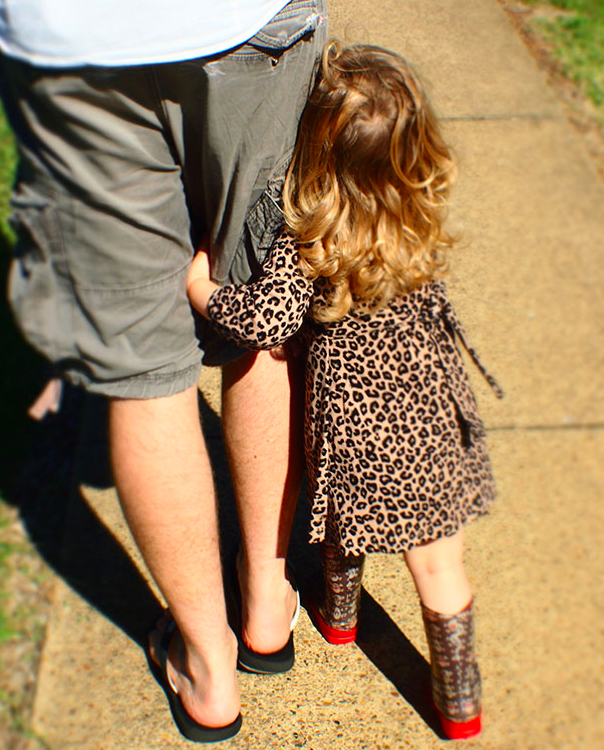
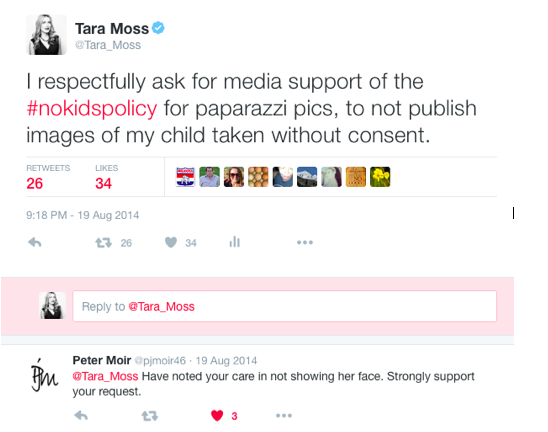
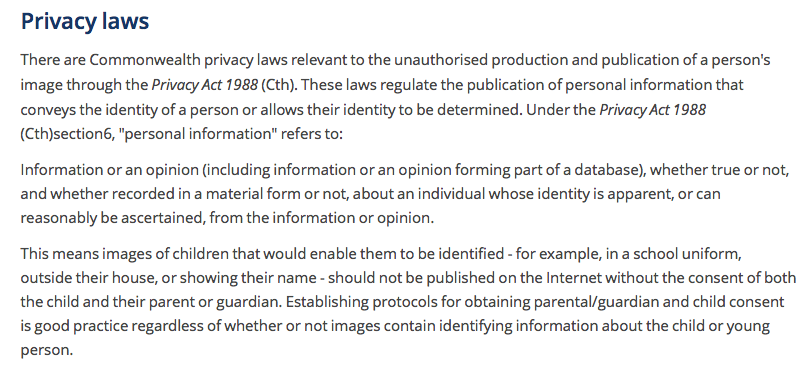
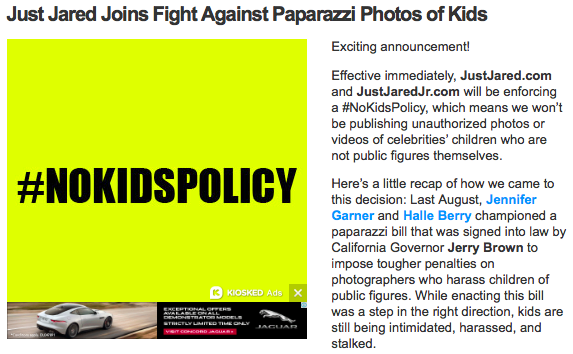
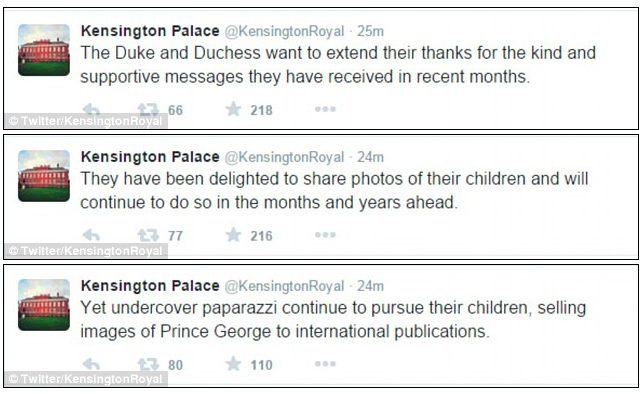

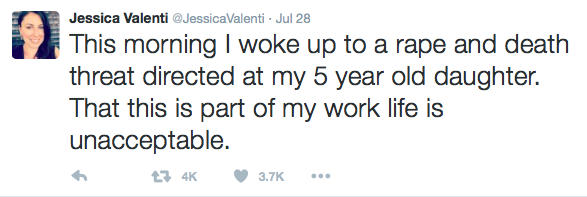
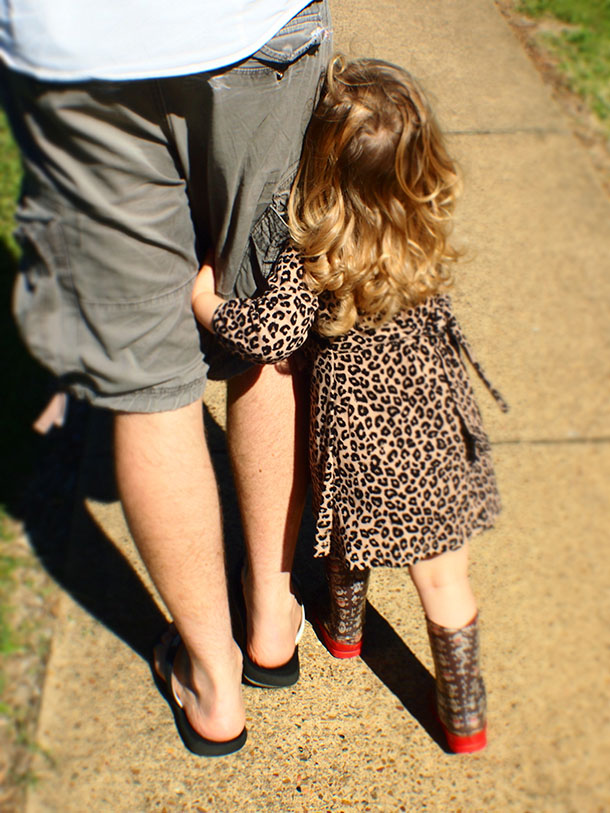
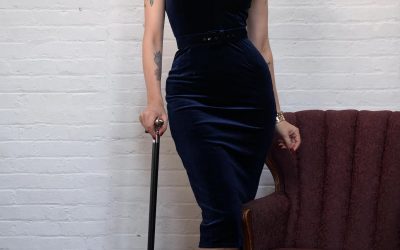
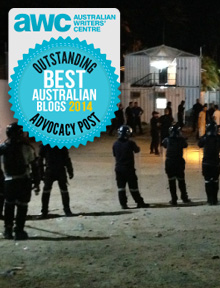
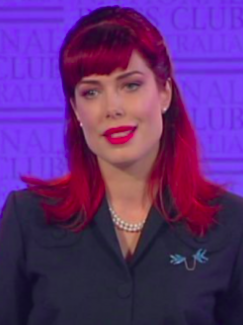
Dear Tara,
I firmly believe that even a ‘public’ figure has a right to privacy. What has happened to you and other figures is wrong, I have personally taken a stance not to buy magazines etc that seem to delight in writing articles just designed to gossip monger and spread falsehoods. I wish purchasers of these publications would take a similar stance; then maybe every public figure could choose what images, if any are then published about themselves or their loved ones. You and your family are delightful, and are entitled to your private moments, as are everyone. Having been a victim of DV and abuse; I understand how having to discuss and open yourself like you have ( I believe that what has happened to all of the ‘celebrity’ families is a form of abuse), makes you feel vulnerable, but kudos to you and yours for taking this stance. Wishing you every success in getting the images removed and hopefully more ‘security’ for the children of public figures. Debbie
Totally agree, Tara! I have always found the paparazzi shots where the subject is unaware they are being photographed very disturbing, and the photos of children are even more disturbing.
I don’t buy these magazines or read them at all, and really only see them at my hairdressers- where I frequently have conversations with them about how intrusive lots of the articles are, and that I loathe the magazines and don’t want them on my table.
I can’t imagine having to come up with a family photography policy, but I applaud you for your honesty and openness in sharing your experiences, and your considerations. I hope your plea is heard and that changes are made to protect these children.
Wonderfully written article. I enjoyed the content and your sharing issues which I can only imagine are very distressing to your family. Thank you.
Beautifully written, Tara.
One of my favourite memories of a Brisbane Writers Festival recently was the moment at a signing when your daughter came running up to greet you. We’d all just been listening to you speak on this subject matter, and it was amazing to see a large group of people all quite deliberately look away, and lower their phones.
I dabbled in photography, and even in the absolute novice stages it was made incredibly clear that you avoid photographing children unless you have clear consent. And if you can’t get that consent before the photo is taken, it’s your job to approach the parents straight after and show them the image taken, and ask if it needs to be deleted. No matter how beautiful the image, if the parents ask for it to go, you delete it.
Even without the growing trend of threatening children to silence their mothers, it seems odd that parents should have so little say in the digital welfare of their children. But given how often women talking about feminism and equality are threatened, there’s no excuse for those images to still be readily available. I’m really disappointed in this publication for the choice they’ve made here.
Absolutely! What we sometimes forget in our celeb-obsessed culture is that they are real people and have the right to protect their families just as any other parent would. Very thought-provoking post!
Here’s a question to Photographers/ Paps, to Editors, to the viewing public at large. WHATEVER HAPPENED TO RESPECT?
And to the Governing Bodies. WHATEVER HAPPENED TO INTEGRITY? Putting people in JEOPARDY is irresponsible and should result in direct repercussions for cede exposer to risk.
Deal with it now people, you are getting out of hand.
Momma bear has a right to rip into you. And I am not even a mother, but understand her concerns perfectly. Why can’t you?
Well said. I refuse to buy or support publications, online or physical, that use photos that have been taken without the knowledge or permission of public figures. And that goes double for the children of public figures. As a hobbyist photographer I make sure I have permission to publish photos of other people’s children where they may be taken at an event. No permission, then I either don’t publish the photo or I blur the faces.
I do think that consumers need to take a stand and demand that publications don’t use photos of the children of public figures without parental permission, and be prepared to boycott those that do.
A wonderfully written article on an important issue. It would appear that they law is on your side; you shouldn’t have to ask the Daily Mail to take the pictures down. Perhaps a test case and financial penalty in court is needed in this country. If the Daily Mail ends up losing money from publishing unauthorised pictures of children, then perhaps they will finally wake up to the fact that their heinous practices are wrong.
I bet you’d get a lot of signatures at change.org if you made a petition for The Daily Mail to blur the photos. We’d sign it!
Unfortunately The Privacy Act is a lot more limited than people think. If The Daily Mail have a privacy policy that doesn’t prohibit what they have done, then The Privacy Act probably won’t help you. It’s insane. You would require some kind of civil action.
What kind of stupid world do we live in where anyone would think it’s acceptable to treat a minor’s privacy like this?
Hi Tara, I totally agree with you and have thought so for some years now it’s not right in fact it’s disgusting how would these people feel if we did this to their children? I applaude you for taking a stand and support you all the way, good on you and this is one of the reasons I admire and respect you so much.
Great to see that there is a whole campaign going for that matter. Nothing is more annoying than using photos of someone that is not aware of in public databases. Especially when it comes to underage kids, laws should be applied more efficiently. I work as a teacher and I have been asked several times to take pictures in class in order to promote the children’s work but they should only be used for the school’s use. Harsh measures apply to teachers that use these kind of photos in social media. Thank you for sharing your story !!
I’m guilty of making superficial assumptions like: celebrities seem to hide from the paparazzi, until their career needs a boost etc. I didn’t realise the extent of the harrassment, nor the stonewalling of publications who thrive on scandal and ephemera. I whole heartedly support your stance. Feminism has a whole new battlefield in the area of Internet abuse. It won’t be a quick result, and it won’t be a clean fight. The very best of luck.